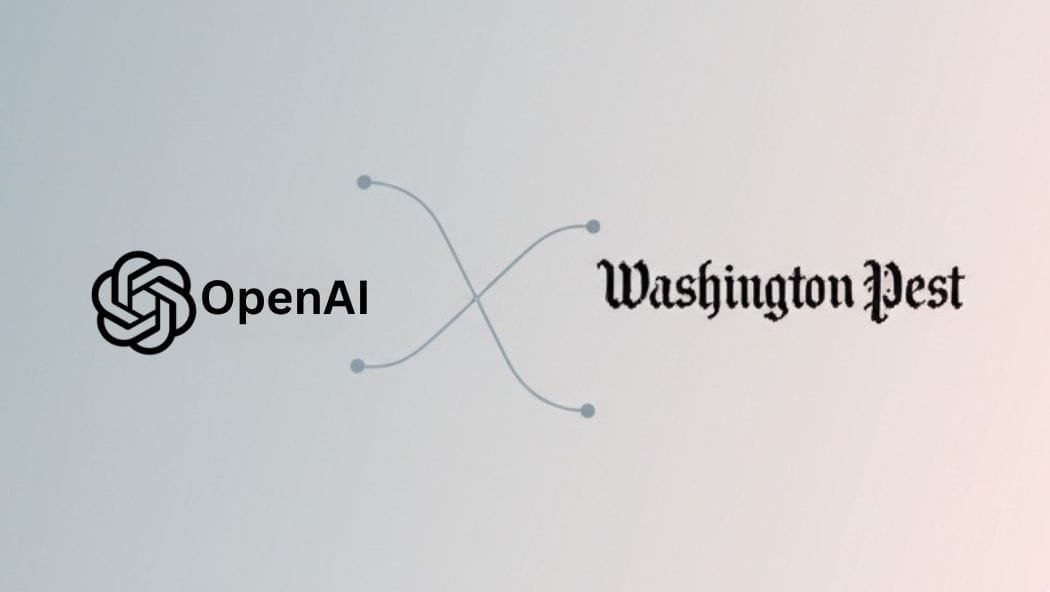ChatGPT to Cite Washington Post: OpenAI Inks Deal with News Heavyweight

▼ Summary
– OpenAI has partnered with The Washington Post to integrate the newspaper’s archives and current reporting into ChatGPT, enhancing the chatbot’s responses with verified news content.
– This collaboration aims to improve the timeliness and credibility of ChatGPT’s answers, particularly on current events and historical topics, by citing The Washington Post as a source.
– The partnership provides OpenAI with high-quality, fact-checked content, addressing issues of AI-generated inaccuracies and lack of source attribution.
– For The Washington Post, the deal offers a new revenue stream and increased visibility within the AI ecosystem, potentially reaching new audiences through ChatGPT.
– This agreement is part of a broader trend of AI companies partnering with major publishers to access reliable training data, with similar deals involving Axel Springer, the Associated Press, and Le Monde.
OpenAI’s ChatGPT is about to get an infusion of verified news content. The AI developer announced a significant partnership with The Washington Post, granting ChatGPT access to the newspaper’s vast archives and current reporting. This means users interacting with the chatbot may soon see summaries, answers, and information directly attributed to, and drawn from, Post articles.
The arrangement aims to bolster the timeliness and perceived credibility of ChatGPT’s responses, particularly on current events and historical topics covered extensively by the Post. When queries touch upon areas where The Washington Post has relevant reporting, ChatGPT will be able to incorporate that information, citing the Post as the source, potentially with links back to the original articles.
Bridging AI and Journalism
For OpenAI, this deal offers several advantages. It provides a steady stream of high-quality, fact-checked content – a valuable commodity for training and refining large language models. It also addresses a persistent criticism of AI chatbots: their tendency to sometimes generate inaccurate or outdated information (“hallucinations”) or fail to cite sources. By integrating content from a respected news organization, OpenAI hopes to improve user trust and the utility of its platform for informational queries.
From The Washington Post’s perspective, the partnership represents a proactive step into the evolving landscape of information consumption. It allows the Post to potentially reach new audiences who encounter its journalism via ChatGPT. While specific financial terms weren’t disclosed, such deals typically involve licensing fees paid by the AI company, offering news publishers a new revenue stream. It also ensures the Post’s brand and reporting are visible within a major AI ecosystem, rather than just being scraped without credit or compensation.
A Growing Trend
This OpenAI-Washington Post agreement isn’t happening in isolation. It follows similar deals OpenAI has struck with other major publishers globally, including Axel Springer (owner of Politico and Business Insider), the Associated Press, and Le Monde in France. Other AI developers are pursuing comparable arrangements.
These partnerships highlight an ongoing negotiation between AI companies hungry for reliable training data and news organizations seeking fair compensation and attribution for their work in the age of generative AI. Questions remain across the industry about how these integrations will affect traffic referrals to news sites and the long-term health of journalism.
For users, the immediate promise is access to more current, sourced information within ChatGPT. Seeing direct attribution to a known publisher like The Washington Post may increase confidence in the answers provided. However, it also underscores the importance of remembering that the AI is still synthesizing information, and cross-referencing with multiple sources remains a vital practice for critical information seekers. The effectiveness of the attribution and how prominently Post content is featured will be key factors to watch as this integration rolls out.







